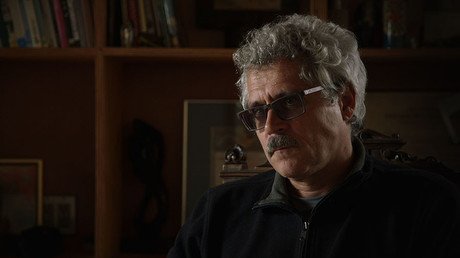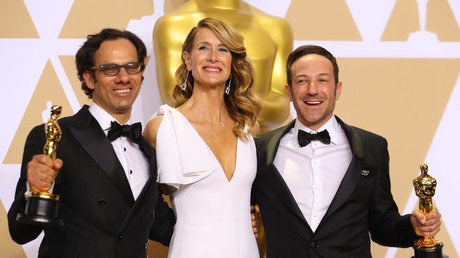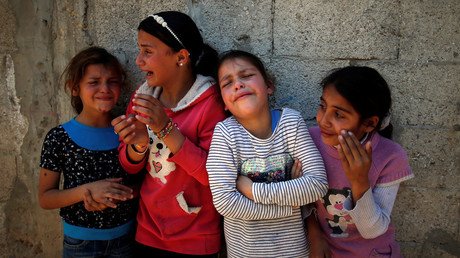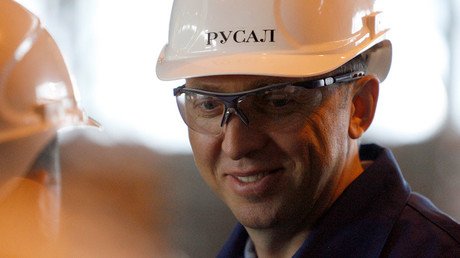Western media silent as Rodchenkov's Russian doping claims fail to stand up in court
Russian officials plan to sue Grigory Rodchenkov, whose testimony played a key part in the country's Olympic bans, after a sports court rejected his claims. But most believe it's too late to reverse the impact of the doping saga.
The scandal over Olympic doping has been running since 2014, and most of the allegations have been known for years. What's changed?
In a landmark ruling in February, the Court of Arbitration for Sport (CAS), the highest legal authority in such cases, reversed the life bans of 28 Russian sportsmen and gave them back their medals, many of them from the Sochi Olympics in 2014.
But it was only this week that a 160-page summary of the session exposed exactly how the allegations that led to the exclusion of entire Russian teams in various sports from Rio 2016 and PyeongChang 2018 failed to stand up to legal scrutiny.
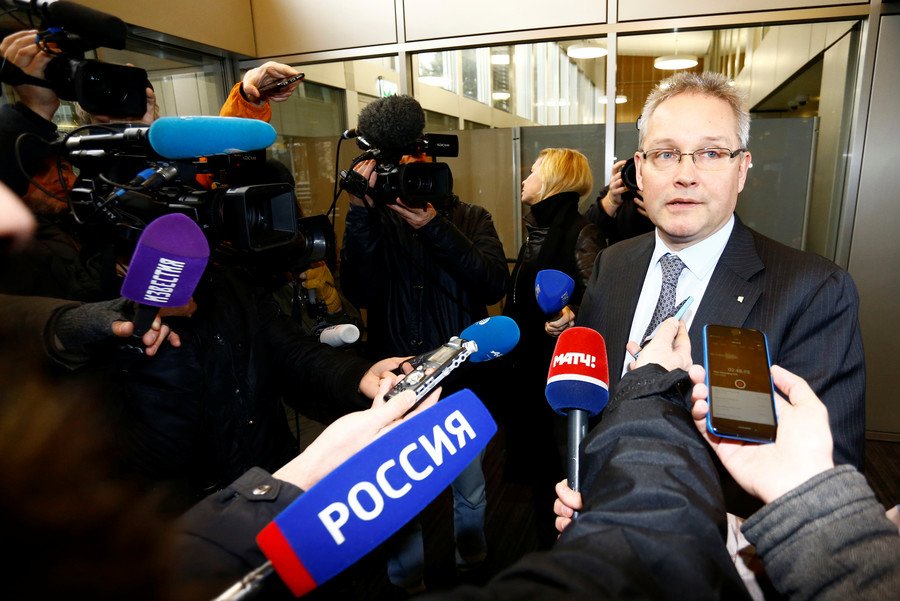
Who failed to convince?
Between 2005 and 2015, Grigory Rodchenkov headed Moscow's anti-doping testing lab before resigning in the wake of the scandal and eloping to the US, where his words laid the foundation for the portrayal of "state-sponsored" doping in Russia involving athletes, coaches, and officials at all levels. He remains in an American witness protection program and testified via Skype "behind a screen, which concealed the entirety of his upper body save for his forearms and hands" according to CAS.
He maintained that there was a "Sochi plan" designed to pump Russian athletes with performance-enhancing drugs and then swap any contaminated samples for pre-stored urine during the 2014 Games. He also described that he was the inventor of the Duchess Cocktail, a powerful mix of PEDs allegedly distributed to a list of Russian athletes. Many were later excluded from competing on the basis of the Duchess list.
However, when cross-examined, Rodchenkov admitted that he "never: (a) distributed the Duchess Cocktail; (b) seen an athlete take the Duchess Cocktail; (c) witnessed instructions being given to athletes and coaches to use the Duchess Cocktail; (d) seen an athlete give a clean urine sample; or (e) seen an athlete tamper with a doping sample." He also admitted that no test of the effectiveness of the Duchess cocktail was ever conducted, and when asked about its exact make-up, which has been a matter of some contention, he "stated that he needed five minutes to explain, and therefore refrained from doing so."
He also repeated claims that a team of officials, nicknamed "Magicians," had developed a technique for opening tamper-proof sample bottles in order to manipulate them and clear Russian athletes, but added that he personally "never observed first hand any bottles being opened or de-capped" and did not know the "precise method" used by them.
How did the panel respond to Rodchenkov?
The exiled official turned out to be a star witness for the Russian appellants in the case. In its conclusion, it said that his assertion of the guilt of Alexander Legkov, the Sochi gold-winning skier who led the appeal, constituted a "bare assertion which is uncorroborated by any contemporaneous documentary evidence." On the use of Duchess by a specific athlete, which a specific official reportedly told Rodchenkov about, the panel ruled that it is "hearsay" of "very limited" value. As to his claims of a Sochi plan, ahead of which clean urine samples were delivered to him, CAS stated that the witness's words were "not corroborated by any further evidence."
Which other testimony casts doubt on the accusations against Russian athletes?
Richard McLaren, the former head of WADA and author of the eponymous report, whose list of names were used to ban hundreds of competitors, freely admitted that their inclusion did not "mean that they committed an anti-doping rule violation," and that he was "merely asked to identify those who may have benefited from the systems." The Canadian professor added that his report was, in any case, "just the starting point for further work" and was severely restricted by budgetary and time constraints.
In view of questions over Rodchenkov, McLaren was asked if his report was, in essence, based on his single testimony. The expert objected, saying that he sought to "corroborate everything" and explained that the Russian scientist's evidence had been confirmed by "four individuals who provided information on condition that their identities would remain confidential."
What effect has the publication of the court documents had in Russia?
An outburst of righteous fury.
"Rodchenkov has done his dark deed. We have suffered colossal damage," said renowned skater and coach Irina Rodnina, one of those namechecked in the fugitive's accusations. "Since these claims have surfaced we have tried to play by the rules against those without rules."
"Rodchenkov lied about doping in our country, which was to be proved. I recommend that a commission is assembled that would gather all false publications about Russian athletes in the Western media, and sue them for defamation," tweeted Igor Lebedev, the deputy chairman of the Russian Duma.
"It's clear Rodchenkov is mixing up his stories, and his new testimony is evidence that the previous ones were fabrications," said Dmitry Peskov, Vladimir Putin's press secretary.
What has been the reaction in the West?
A polite silence. Aside from specialist websites writing about Olympic sport, no major Western outlet has covered the story.
This is particularly telling in view of the fact that the entire doping scandal was not started by investigators, but German documentary makers from ARD, who managed to create the biggest Olympics upheaval since the fall of the Soviet Union with the help of little more than interviews with two other runaway Russian insiders, the Stepanovs.
Since then, there has been a consistent barrage of accusations, all of them reported without question within the wider context of Moscow's new image of an international rogue state, from Crimea to the US voting booths to the running track.
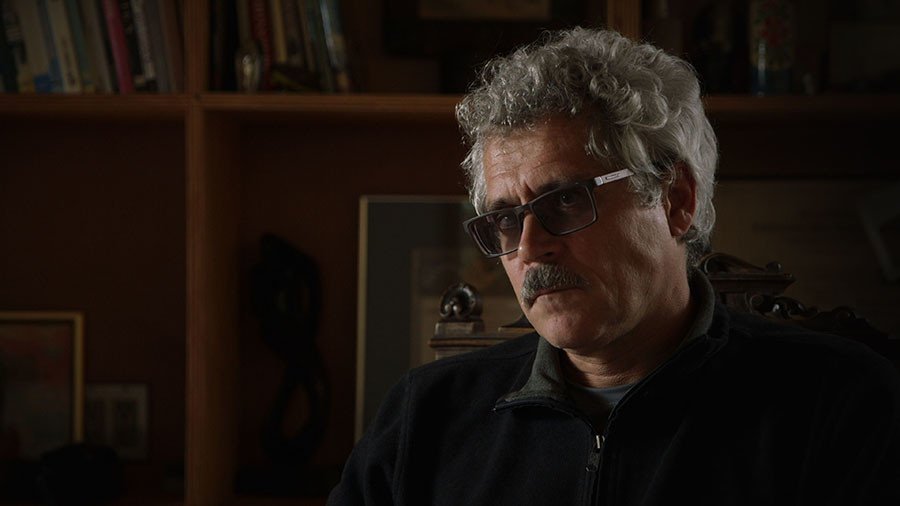
Just a fortnight ago, Rodchenkov gave an interview to a Norwegian TV station wearing a ski mask and a balaclava, and his words were spread verbatim by dozens of outlets from the New York Times to Fox News.
Only last month, hundreds of millions around the world tuned in to watch Icarus, a film in which he was portrayed as a heroic whistleblower, which won an Oscar for Best Documentary.
The officials have been similarly reticent.
When the original ruling was published, IOC chief Thomas Bach stepped in to say that it was "extremely disappointing and surprising" and demanded that CAS reform itself.
Meanwhile, the American anti-doping agency USADA, which earlier said that the February ruling had "sabotaged the integrity of the Games" despite not being at the CAS hearing and added that "the whole mess stinks" and that "the nightmare for clean athletes continues," has not been quick to retract its statements or turn away from Rodchenkov.
In any case, Russia's anti-doping agency remains under suspension, without accreditation to enter its own testing centers, and although the country will be allowed to compete under its own flag at Tokyo 2020, several of its teams will have limited allocations.
What about the athletes whose names have been cleared?
Legkov told Russian television how he felt when he was forced to miss the Olympics this year despite being cleared, because the IOC chose not to invite any athletes whose names had been linked to doping scandals, regardless of guilt.
"I was preparing for Pyeongchang like a madman, I give it my all. I had better results in tests than even those ahead of Sochi. In a moment all that was ruined," said the skier.
"No one was listening to us. We insisted on our innocence right from the start. But we lost those years of our careers. We trained our whole lives to be able to do this," Maxim Vylegzhanin, who won three silver medals at Sochi and had them restored by the same decision this year, told RT.
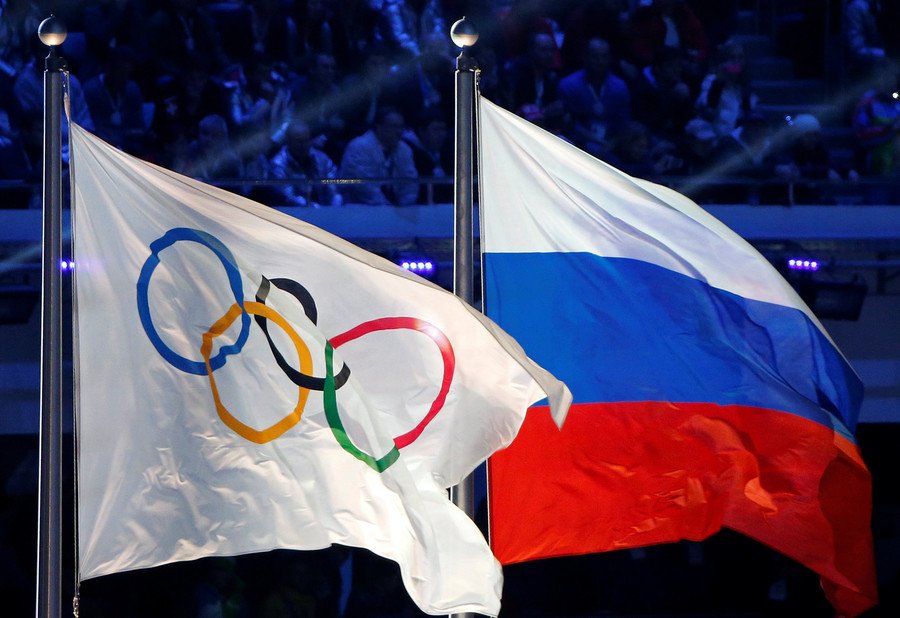
What next?
Foreign Minister Sergey Lavrov says that Russia "defend[s] clean athletes," while former sports minister and hockey legend Viacheslav Fetisov said that "now we have a chance of winning our cases in court," as long as "there is a firm position, and facts to back it up." The Russian Luge Federation and several individuals say that they will launch lawsuits, which may mention Rodchenkov by name.
"It's evident that McLaren just took Rodchenkov's words at face value. The CAS decision confirms that now. The guilt of the athletes, if it was present, should have been determined with evidence. This did not happen. We await more legal proceedings," said Sports Minister Pavel Kolobkov.
But several top officials say it is too little, too late, not just for those sportspeople who missed the last Olympics, but for Russian sports as a whole.
"This will change nothing," said Nikolay Durmanov, the ex-chief of the Russian anti-doping agency. "Yes we can enjoy some moral satisfaction, but in the eyes of the world Russian sport has been painted a rich black color, and there is nothing we can do to wash that reputational stain off this generation. This was an information war waged against us."
If you like this story, share it with a friend!
